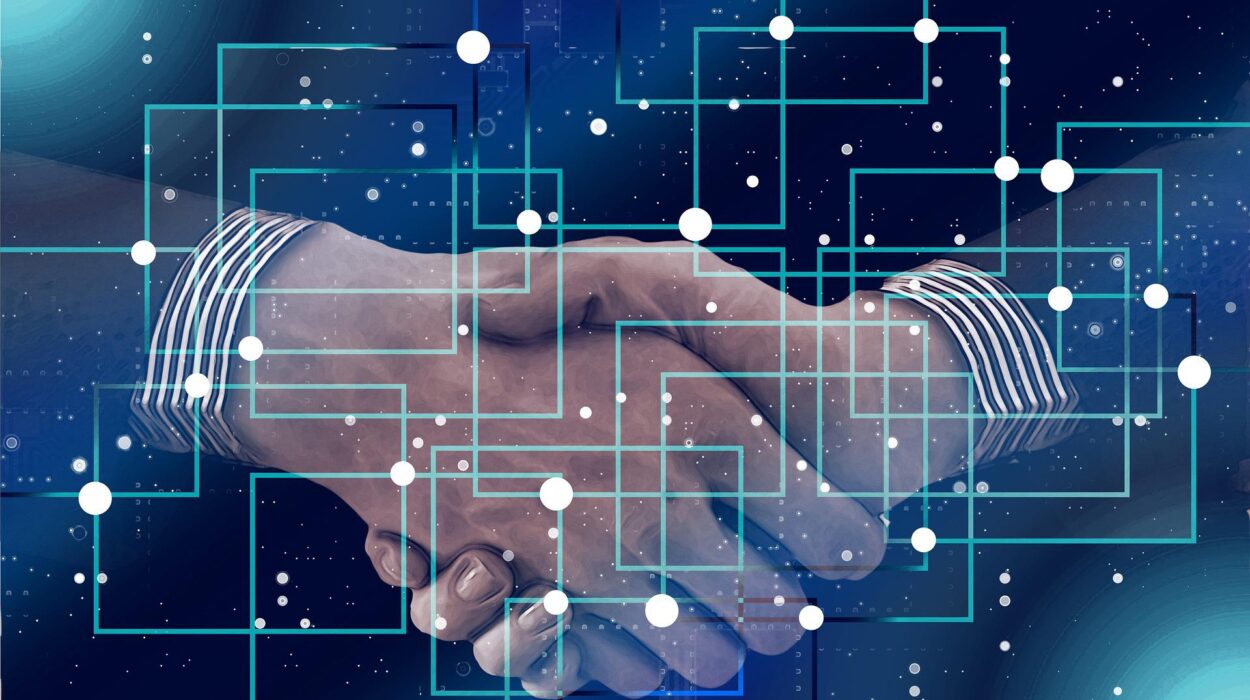The term “blockchain” refers to a kind of distributed database that adds new blocks (ordered entries) to an existing list in real-time. These blocks are cryptographically connected. A cryptographic hash of the prior block, a timestamp, and transaction data are all included in each block. A blockchain is a distributed, public digital ledger used to record transactions across several computers in such a way that the record cannot be amended retrospectively without altering all following blocks and the consensus of the network.
Blockchain’s principal utility is as a database for recording transactions, but its advantages go well beyond those of a typical database. The risk of tampering by an adversary is eliminated, and the following business advantages are realized as a result. Read more about smart contract blockchains
• Rapidity gains
Transaction duration may be reduced from days to minutes using blockchain technology. When a central authority is not needed to confirm a transaction, the settlement process may go much more quickly.
• Sparingly used
There is less of a need for supervision during financial transactions. All involved may engage in the direct trading of goods. Due to the distributed nature of the blockchain, no information must be recorded twice.
• Additional safety measures
Blockchain’s built-in safeguards prevent data manipulation, fraud, and cybercrime.
What makes the blockchain such a significant technological advance?
Businesses are propelled forward by the power of information. It is important to get the information as rapidly as possible while ensuring that its accuracy is preserved. Blockchain technology is particularly suited for the distribution of this information since it delivers information that can be promptly shared and is entirely transparent. This data is kept in an immutable ledger, and the only people who are authorized to access it are members of a particular network who have been given permission to do so.
Using a blockchain network, it is possible to keep tabs on not just orders and payments but also accounts, production, and a great lot more. You can observe all the subtleties of a transaction from its inception to its conclusion since all of the participants of the network have the same viewpoint on the truth. This not only boosts your self-assurance but also opens new opportunities and increases your productivity.
How Does Blockchain Work?
• When a transaction occurs, it is recorded in a “block” of data.
These deals show how easily anything like a product, or an idea may be traded from one person to another (intellectual). Information such as who, what, when, where, how much, and even conditions, such as the temperature at which a food shipment was maintained, may be included in the data block.
• Each brick is connected to its predecessors and successors.
These blocks get connected when an object is transported from one area to another or when ownership changes hands, creating a chain of information. The blocks prove the chronological sequence in which the transactions occurred. In addition, the blocks are connected such that no two adjacent blocks may be altered or a new block inserted between them.
• The transactions in a blockchain are recorded chronologically in a linear, immutable chain.
As more blocks are uploaded, the blockchain’s ability to verify each individual block improves. In this way, the key virtue of immutability—that the blockchain has not been altered—becomes readily apparent. This makes it such that no malicious actor can alter the data and a permanent record of all transactions can be kept that everyone in the network can trust.
Numerous Positive Aspects of Blockchain Technology
• More confidence.
Using blockchain technology will give you the peace of mind that the data you are receiving is both accurate and up to date, and that any confidential blockchain records you keep will be accessible to only those members of the network to whom you have granted access. If you are a member of a network that is exclusive to members, using blockchain will give you the peace of mind that using blockchain will give you the peace of mind that the data you are receiving is both accurate and up to date.
• A heightened perception of one’s own safety.
It is the responsibility of each individual participant in the network to arrive at a decision on the accuracy of the data, and once a transaction has been validated and saved for good, it is impossible to change the data in any way. A transaction cannot be reversed by anybody, not even the person who oversees managing the system.
• Higher levels of production.
By using a distributed ledger that is shared across the users of a network, it is feasible to eliminate time-consuming record reconciliations. This will save a significant amount of time. In addition, to accelerate transactions, a present set of instructions may be put down on the blockchain and carried out without the participation of human beings. This is another feature of the blockchain.
There are a wide variety of participants in each blockchain network who do things like:
• Investors in blockchain
Users (usually businesses) who have been granted access to the blockchain may transact with other users.
• Regulators
Users of the blockchain who have been granted the ability to monitor network transactions.
• Operators of Blockchain-Based Networks
Those who have the privilege and responsibility of defining, developing, maintaining, and monitoring the blockchain network.
• Officials who issue certificates
The members of staff whose job it is to create and maintain the various certifications needed to operate a permissioned blockchain.
The Bottom Line
Despite its widespread adoption and usage for a wide range of financial activities, blockchain remains a transactional ledger that stores nothing beyond its own records. Due to the centralized nature of the blockchain, users may only see transactions that pertain to their own accounts. This ledger only contains information about your own financial dealings and are not shared with any other parties, unlike other ledgers, which may include the funds or stock and transactions of others.
Cryptocurrency and blockchain technology appear to be the next topic of conversation. New cryptocurrencies are constantly being introduced to the market, while existing ones are attracting more and more attention from investors throughout the world.

